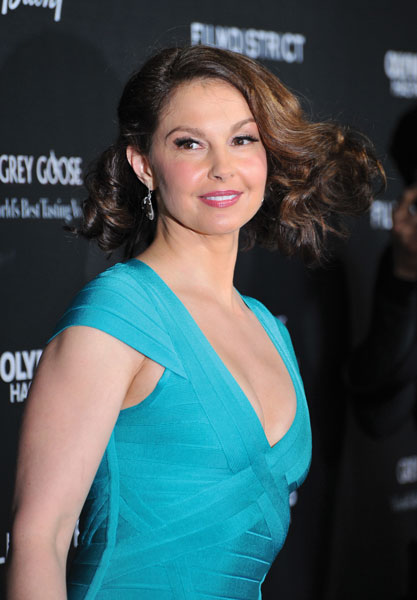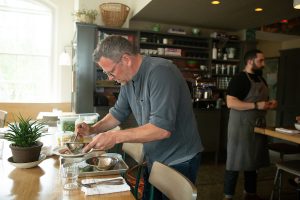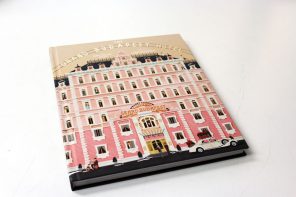Every Sunday, Ashley Judd hosts a picnic for loved ones at her home in Tennessee, she said in an interview with friend and fellow actor Salma Hayek for the cover story of Town & Country’s April issue.
She also gives dance parties; camps in the Great Smoky Mountains National Park; watches Kentucky men’s basketball — the University of Kentucky graduate is a big Wildcats’ fan; reads; and meditates.
It sounds like an idyllic life, but it does not tell Judd’s entire story. That story finds the actor-activist — who holds a mid-career master of public administration degree from Harvard University’s John F. Kennedy School of Government — on the front lines of the fight for women’s rights as a leader of #MeToo and a Goodwill Ambassador for the United Nations Population Fund (called UNFPA, for the United Nations Fund for Population Activities). WAG caught up with Judd briefly at the Betteridge jewelers’ cocktail reception for the Greenwich International Film Festival’s Changemaker Gala last month. Now in its fourth year, GIFF is focused on film, finance and philanthropy, supporting five or more charities each year. Nearly half of this year’s films were written and/or directed by women, including “Washed Away,” former Rye Brook resident Dana Nachman’s tale of a disabled man who finds transcendence in making mandalas on the beach.
The gala — its awards dinner was held down the street at l’escale restaurant bar, with “Today” correspondent Jenna Bush Hager serving as emcee — honored not only Judd but Community Changemaker Duncan Edwards, executive director of the Waterside School in Stamford, which serves prekindergartners through fifth-graders “regardless of limitations of income or circumstance.”
Judd — daughter and sister of country singers Naomi and Wynonna Judd, respectively — is as exquisite of manner as she is in appearance. She told us the award came at a “fortuitous” time as its prize money will support the UNFPA’s safe space for Rohingya refugee women in Kutupalong, Bangladesh.
Since 2016, more than 625,000 members of the Muslim-majority Rohingya people have fled the Rakhine State of Myanmar, a Buddhist country, to escape ethnic cleansing. More than 500,000 live in Kutupalong, site of one of the largest and most overcrowded refugee camps in the world. Among them are more than 64,000 pregnant women who need urgent medical care, particularly as it is now monsoon season in Bangladesh. Judd works to provide women like Ajida — who was nine months pregnant when she met Judd, having survived a journey that took the lives of four of her children — with clean delivery kits and trained midwives. (You can read the journal of Judd’s March visit to Bangladesh on her website.)
But Judd’s concern is for all women’s reproductive health and the health of their children. In 2006, she was quoted in Scotland’s Sunday Mail newspaper as saying that she thought it “unconscionable” for her and then-husband Dario Franchitti, a Scottish race-car driver, to have children when so many are starving in impoverished countries. Instead, she is mother to her causes, including #MeToo, which grew out of women’s responses to The New York Times’ Oct. 5 article on sexual abuses by movie producer Harvey Weinstein. In that story, Judd recounted how some 20 years ago, she had arrived at the Peninsula Beverly Hills for a business breakfast meeting with Weinstein and was redirected to his hotel room, where he asked her to massage him or watch him shower. She rejected his advances and immediately told her father, Michael Charles Ciminella, a marketing analyst for the horseracing industry, as well as members of the production team of “Kiss the Girls” (1997) when she reported for work on the set later that day.
Judd was camping alone in the Great Smoky Mountains National Park when The New York Times story broke.
“I didn’t know to what kind of world I would be returning,” she told Hayek, whom she encouraged to tell her own Weinstein story. “I was maybe going to be ostracized for it, but I was at peace with that.”
Instead she found herself at the forefront of a community of women — and men — sharing their harassment stories with #MeToo and advocating for an end to sexual abuse. She took part in the 2017 Women’s March. On April 30 of this year, Judd sued Weinstein, charging him with sabotaging her career after she rebuffed him. “Lord of the Rings” director Peter Jackson has backed up that claim, saying he wanted to hire her for a critical role in the series but was told by Weinstein that she was “a nightmare” to be avoided “at all costs.” Weinstein has since been indicted on rape and criminal sexual acts charges and, on June 5, pleaded not guilty.
There have been other movements to end sexual abuse. But at the gala, Judd told WAG that she believes this time will be different.
“It already is,” she said. “And the change will be better not only for women but for men, too.”
For more, visit greenwichfilm.org and ashleyjudd.com.





